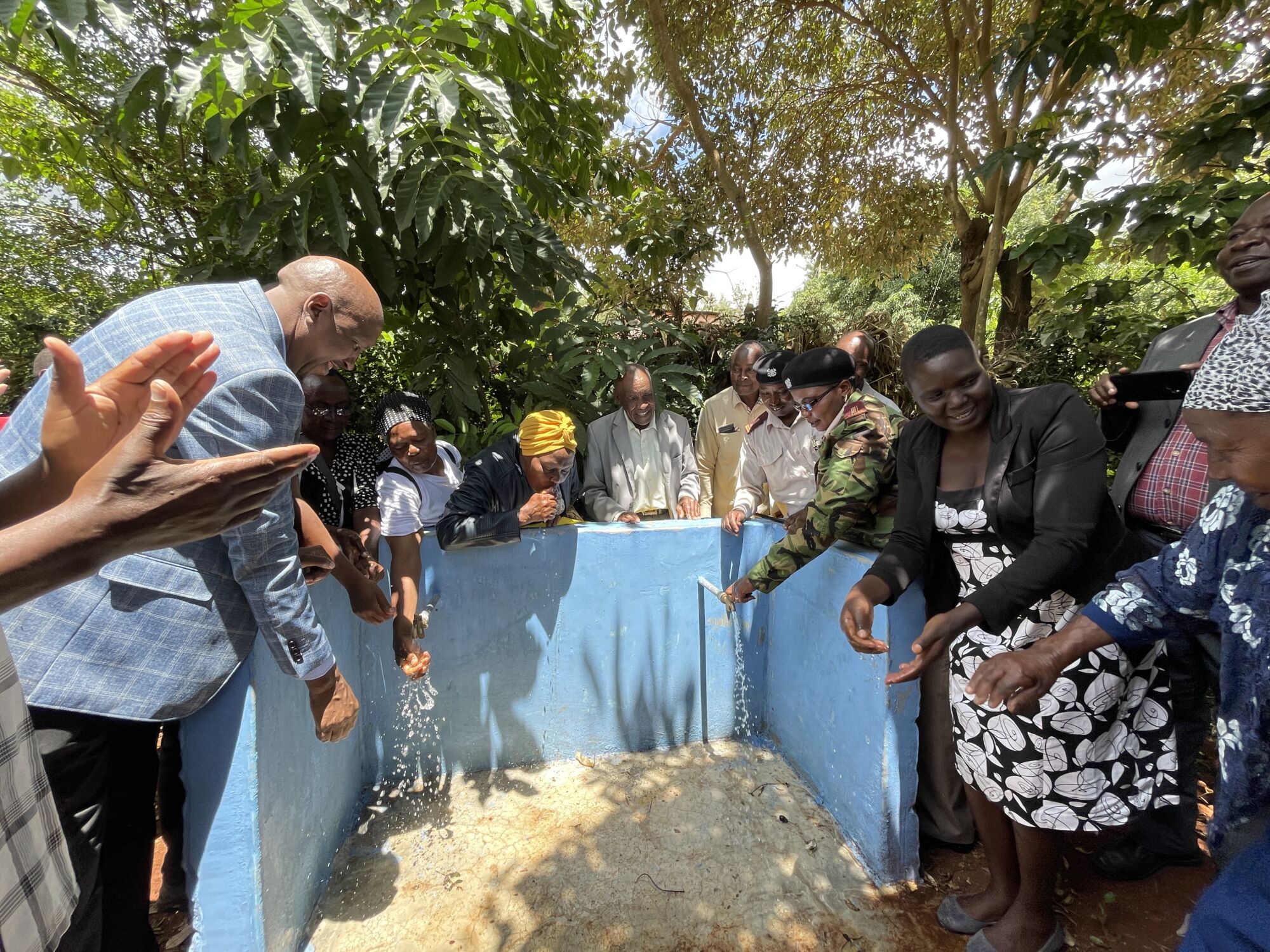On March 5th the IFIL project celebrated a transformative milestone together with the Kilalani Farmers Cooperative Society: a borehole that promises not only to secure vital access to water but also to improve the lives and livelihoods of the entire community.
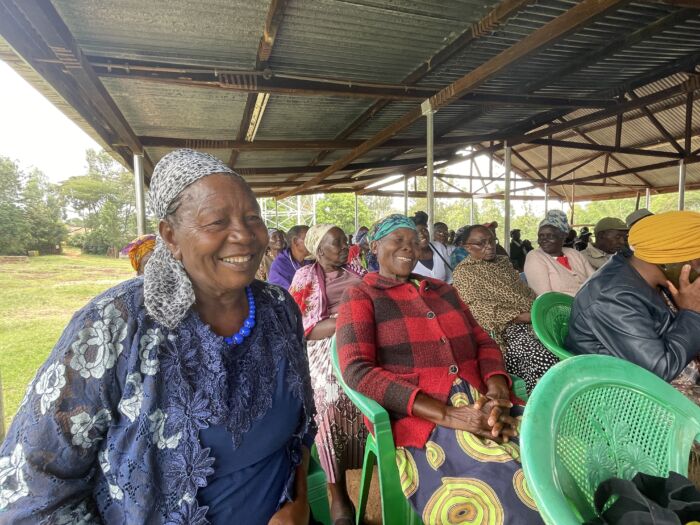
Women and men gather in the multipurpose hall of Kaliluni Cooperative Society in a small village in Machakos to witness the launch of a borehole project that they have been longing for a long time. At the center of the cooperative office are two towering tanks that act as a landmark to the community.
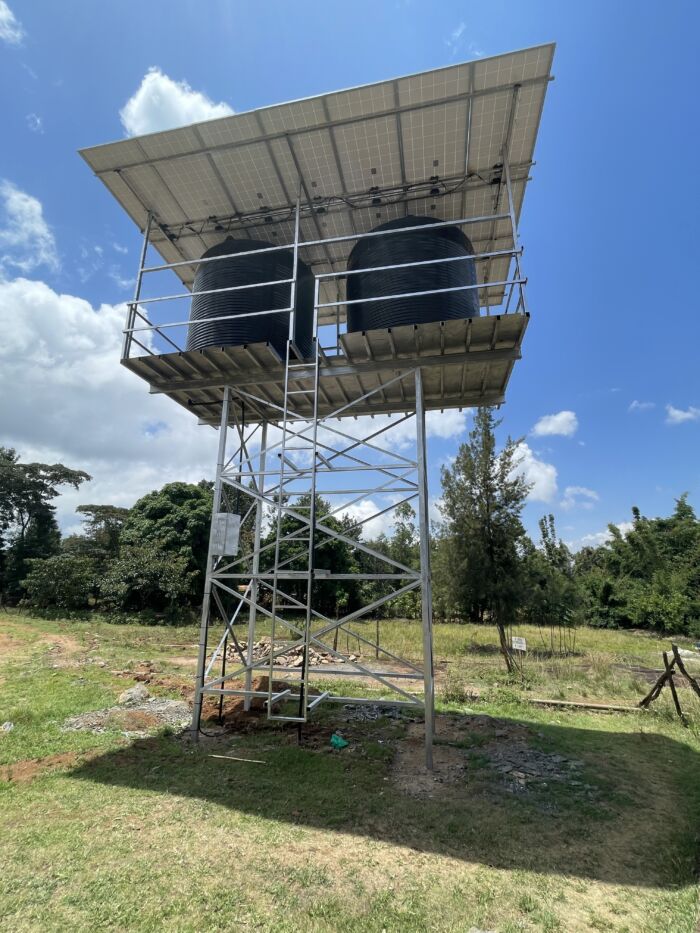
“Maji ni Uhai” (water is life), explained Jacob Mutuku, chairman of the cooperative. This statement is now a reality for farmers and members of the farmers’ cooperative. This was made possible by the Innovative Finance for Improved Livelihoods (IFIL) project that provided them with a small loan of Ksh 3.1 million (20,000 Euro).
For years, the region has been experiencing recurring. This meant that for the cooperative to access water, they had developed a local mechanism to tap rainwater using water pathways directing them to a manmade dam inside the 15 acres of land owned by smallholder coffee farmers. However, there has been a downside, “The water is usually dirty, and this means that when we pulp or wash our coffee, this affects the coffee quality since our coffee has an odor,” explains Mutuku.
With this background, they sought financial support from IFIL to drill a borehole that would help improve the quality of their coffee and reduce the expenses they have been using to purchase clean water for coffee washing and pulping.
On average, we have been purchasing water worth Ksh 300,000/= ($2,104) monthly for coffee washing and pulping; this money will now be used to do other things that will bring money to farmers. Clean water will improve the quality of coffee and, therefore, improve smallholder farmers’ incomes.
However, it has not been easy, Jacob Mutuku explains. We had earlier approached several banks and creditors, but we were not successful.
“Fortunately, when we approached Oikocredit, they agreed to fund the project. To ensure proper management of the resources and enable farmers to repay the loan, the board members and staff have gone through a myriad of trainings, including but not limited to governance, Coffee price risk management, gender mainstreaming, and environment and climate change resilience.
Apart from coffee processing, the water is a game-changer for the community; plenty of water will be provided to the community within the vicinity of the cooperative that has water challenges. ” explains Mutuku.
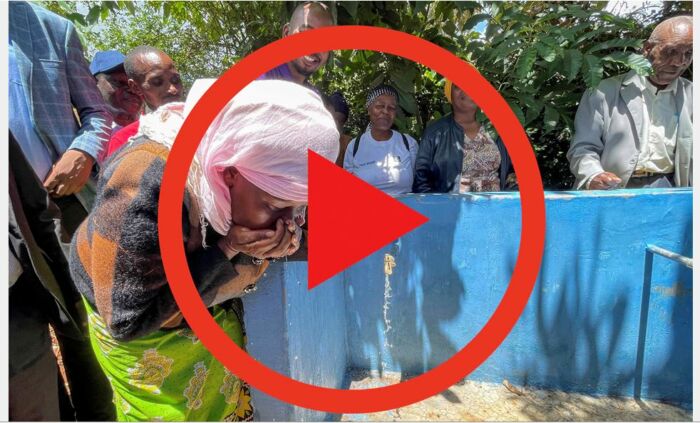
The borehole is also a great win for women and girls who have been walking long distances to access clean water.
“I can now afford to spend more time on my farm since I will no longer take the long walk, multiple times a day, to collect water,” says Maureen Musau, a woman coffee farmer.
Waterborne diseases such as diarrhoea and typhoid will also be a thing of the past. Additionally, the project will help achieve food security by engaging the youth to plant vegetables and, as a result, earn an income by selling them in the nearby market.
Farmers have, over the years, seen the sun as a bother and deterrent to their efforts to grow crops. But the sun has now become a blessing in disguise.
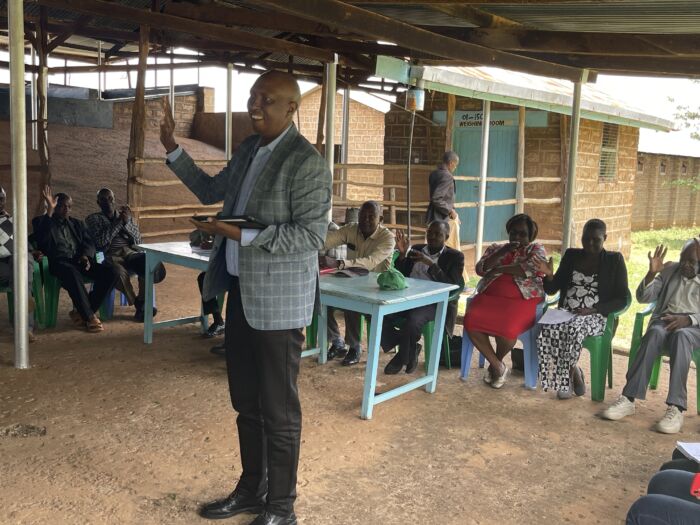
Speaking during the event, Elikanah Nganga, Oikocredit’s Social Performance & Capacity Building Officer, explained that “the IFIL project is financing renewable projects and the Kilalani solar-powered borehole is a testament that it is possible to support cooperatives in rural areas and to ensure communities access clean water, thanks to solar power. Solar (clean energy) powered boreholes ensure we don’t harm the environment and reduce water extraction costs.”
The sun is now seen as a blessing instead of a curse.
Elikanah further adds, “this is one of the projects that will address climate change risks among the community and help them adapt.”
It’s truly heartwarming to witness the project launch and the positive contribution it will bring to this community.
Read more about the IFIL project here: IFIL: Empowering FBOs & Women’s Livelihoods through Innovative Finance (svenskakyrkan.se)
